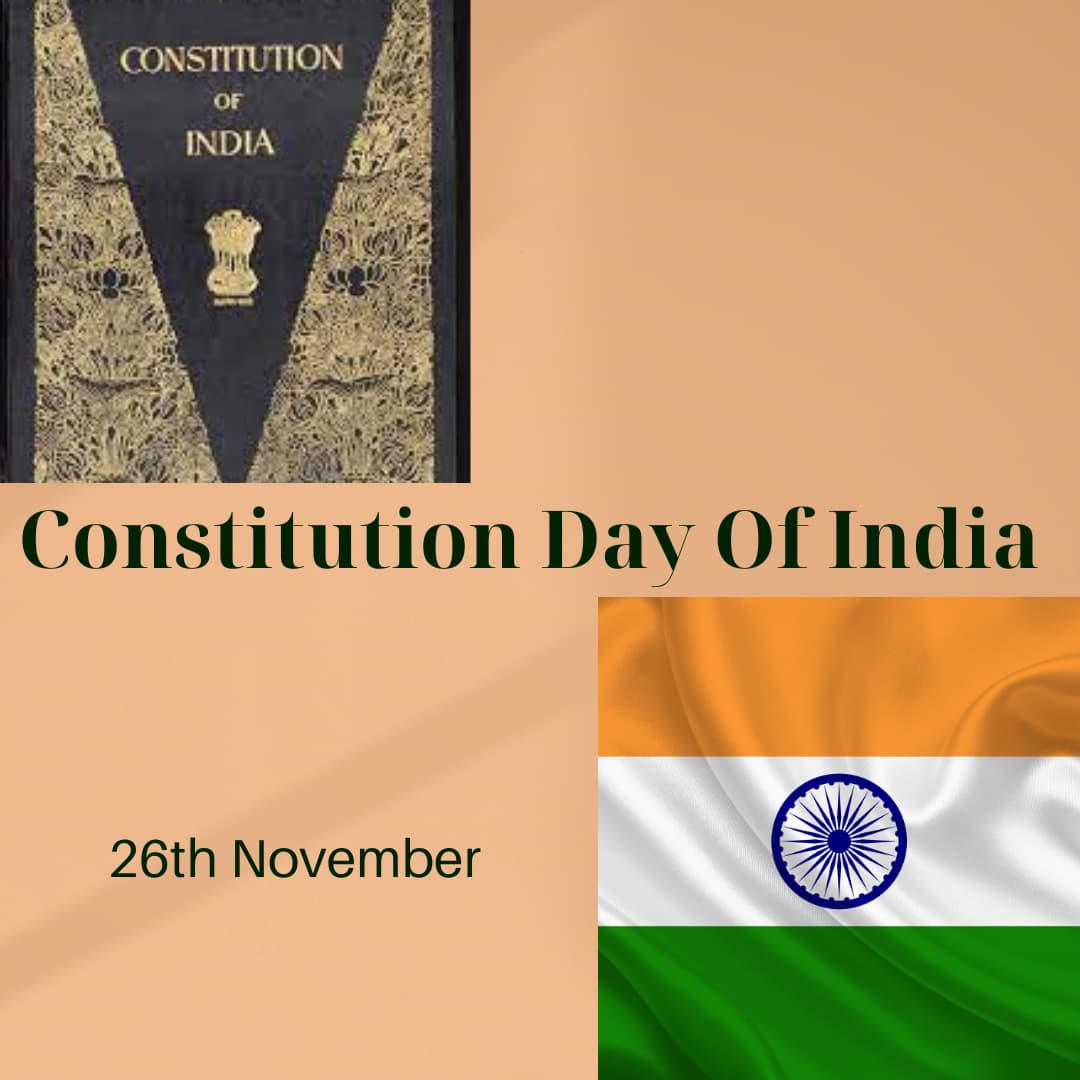Celebrating Unity in Diversity: Constitution Day of India.

Introduction:
India, a land rich in cultural diversity and historical significance, commemorates its Constitution Day on the 26th of November each year. This day holds immense importance as it marks the adoption of the Constitution of India in 1949, paving the way for the nation to become a sovereign, socialist, secular, and democratic republic on January 26, 1950. The Constitution Day, also known as Samvidhan Divas, serves as a reminder of the visionary leaders who crafted the guiding principles for the world’s largest democracy.
Historical Background:
The history of Constitution Day can be traced back to the tireless efforts of the Constituent Assembly of India. The assembly, chaired by Dr. B.R. Ambedkar, played a pivotal role in drafting the Constitution. After three years of intense deliberations, the assembly adopted the Constitution on November 26, 1949. This date was chosen to honor the contribution of Dr. Ambedkar, often regarded as the principal architect of the Indian Constitution.
Significance of Constitution Day:
Honoring the Founding Fathers:
Constitution Day serves as a tribute to the visionary leaders and framers of the Constitution who dedicated themselves to shaping a just and inclusive society. Dr. B.R. Ambedkar, Jawaharlal Nehru, Sardar Patel, and other members of the Constituent Assembly are remembered for their commitment to creating a framework that upholds the ideals of justice, liberty, equality, and fraternity.
Promotion of Constitutional Values:
The celebration of Constitution Day is an opportunity to reiterate the values enshrined in the Preamble of the Indian Constitution. It reminds citizens of their duty to uphold justice, liberty, equality, and fraternity and to promote a sense of unity in diversity.
Educational Initiatives:
Constitution Day is marked by various educational programs and initiatives aimed at creating awareness about the Constitution and its significance. Schools, colleges, and universities organize seminars, lectures, and competitions to engage students and the public in discussions about constitutional rights and responsibilities.
Pledge-Taking Ceremonies:
Across the country, citizens participate in pledge-taking ceremonies, where they reaffirm their commitment to the ideals of the Constitution. These ceremonies emphasize the collective responsibility of every individual in building a harmonious and just society.
Government Programs and Initiatives:
The government of India actively participates in the celebration of Constitution Day by organizing events at the national and state levels. These events highlight the constitutional achievements of the nation and the ongoing efforts to strengthen democratic institutions.
Challenges and Reflections:
While celebrating Constitution Day, it is essential to reflect on the challenges faced by the nation in upholding the principles laid down by the Constitution. Issues such as social inequality, discrimination, and threats to freedom of expression underscore the need for continuous efforts to ensure that the ideals of the Constitution are upheld in letter and spirit.
Conclusion:
Constitution Day in India is not merely a symbolic celebration; it is a reminder of the shared commitment to the principles that form the bedrock of the nation’s identity. As India continues its journey as a vibrant and diverse democracy, the Constitution remains a guiding light, inspiring citizens to work towards a society where justice, liberty, equality, and fraternity prevail. On this day, let us renew our dedication to the Constitution and strive to build a nation that lives up to the dreams of its founding fathers.





